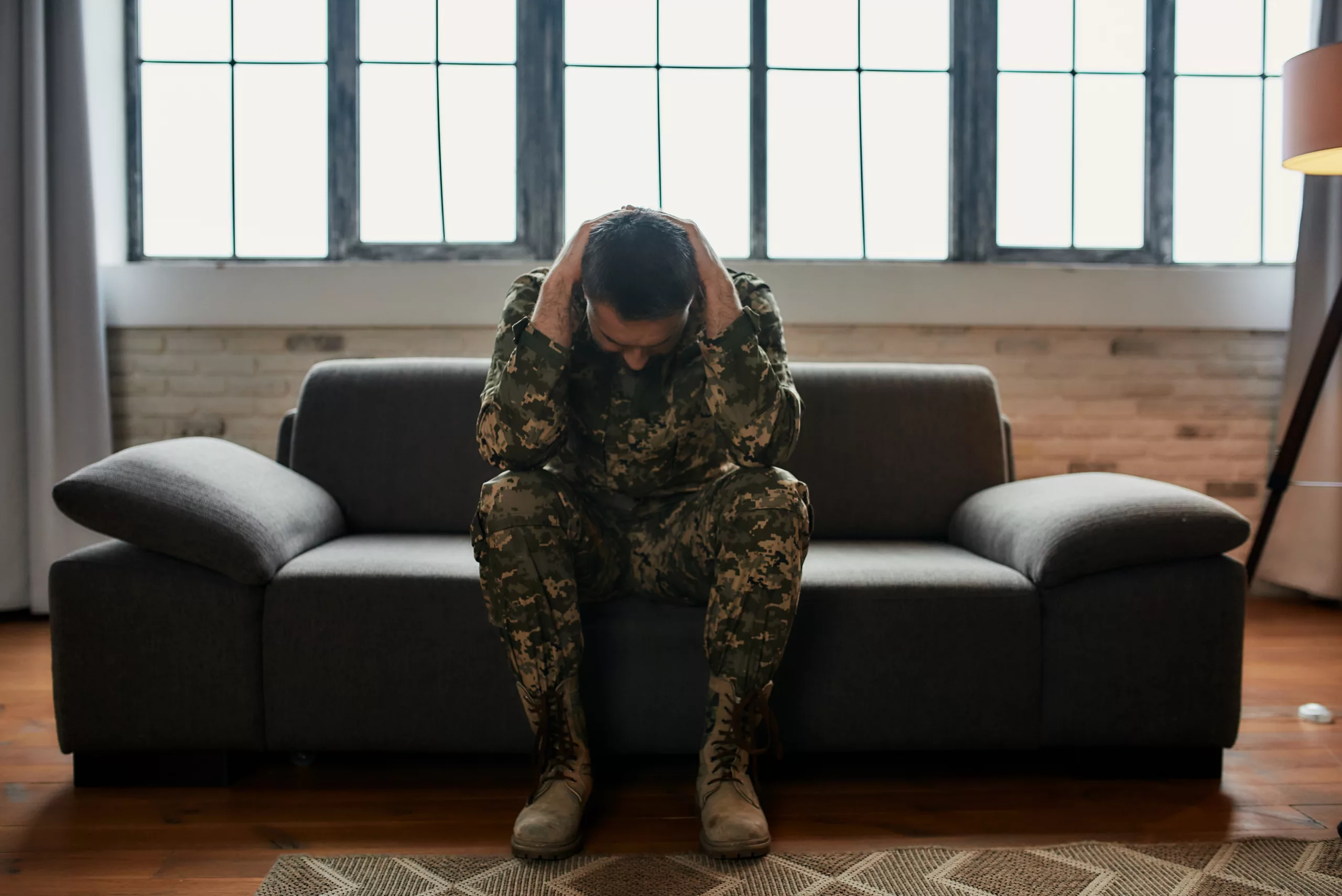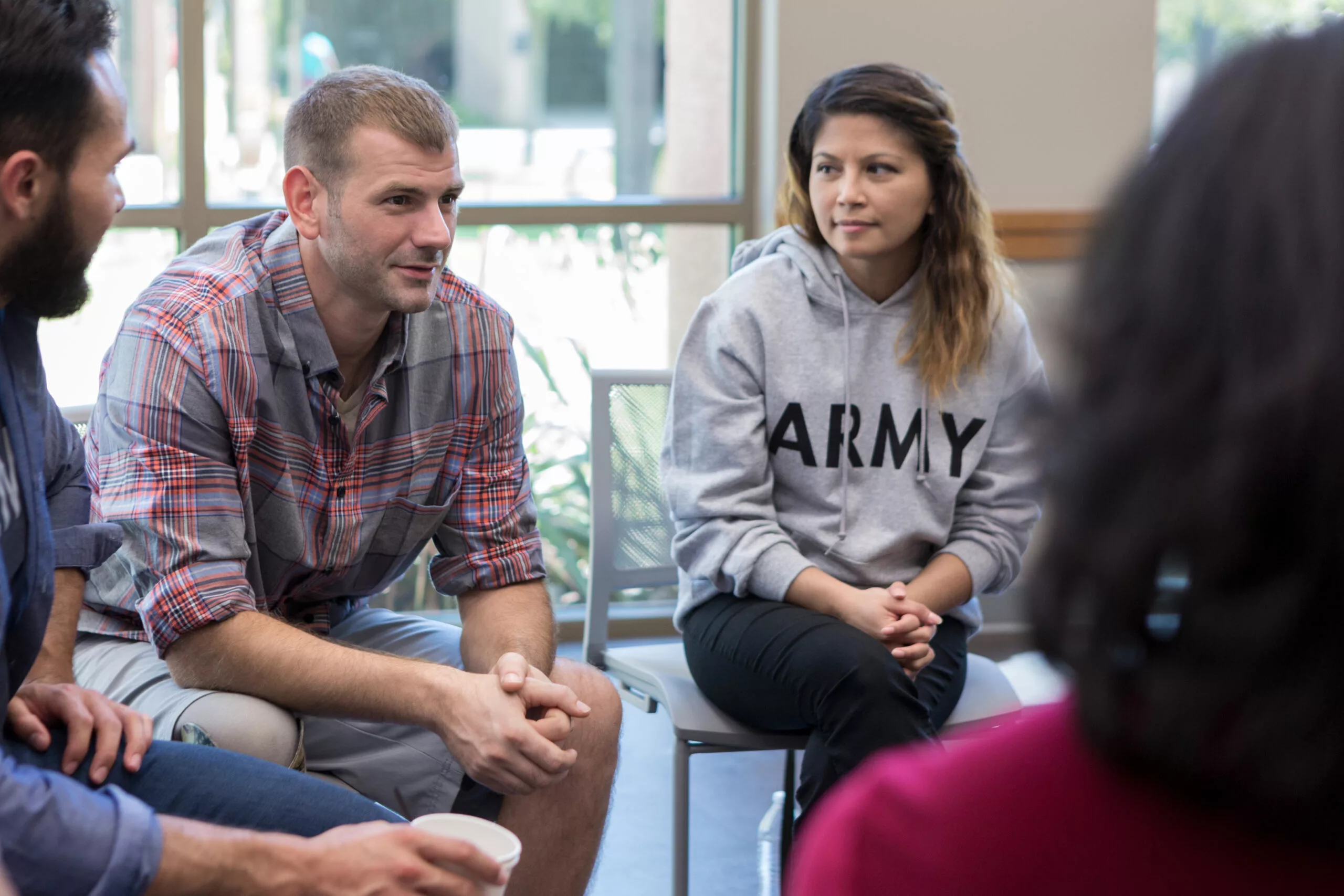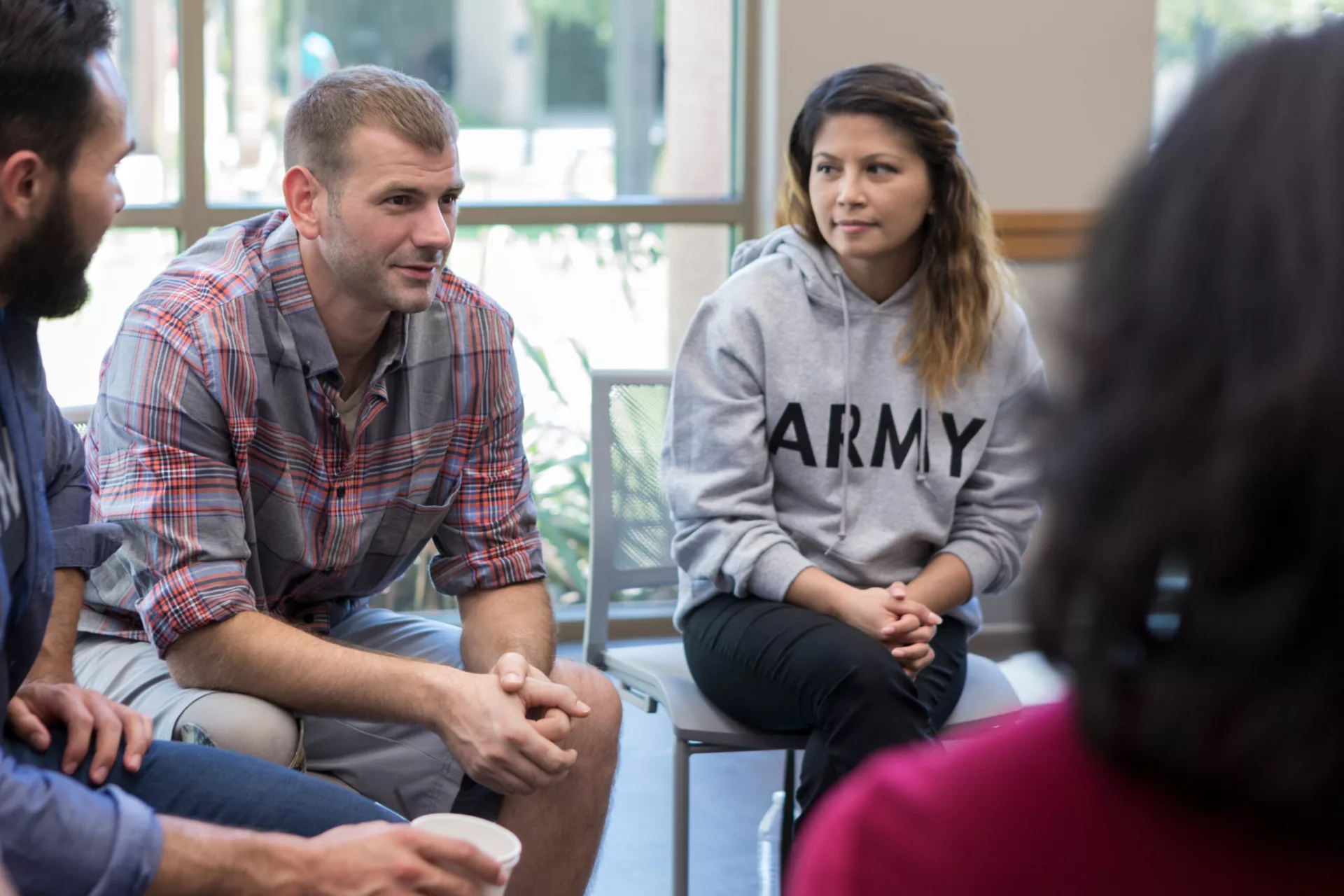
The Correlation Between Veteran Trauma and Addiction
Military combat trauma and addiction are complex, interconnected issues that can wreak havoc on the lives of military veterans when left unaddressed.
Unfortunately, there’s still a heavy stigma surrounding military men and women seeking professional help that prevents many of them from receiving the support they need. The extreme and often distressing conditions and circumstances of deployment can lead to prolonged and increased substance use that can be fatal if left untreated.
Within this article, we’re going to dive into the correlation between military trauma and veteran addiction. In the end, we’ll provide you with some practical guidance on how to find a veteran-fluent addiction rehabilitation program near you when you’re ready to begin the recovery process.
Trauma and addiction
Trauma and addiction are both intertwined, with one often triggering or contributing to the development or exacerbation of the other.
Trauma is characterized as a distressing, shocking or life-threatening event that leaves a lingering, significant impact on an individual’s mental health and overall well-being. In an attempt to cope with the physical, emotional and mental aftermath of a trauma, many individuals self-medicate with drugs and alcohol to numb or “manage” their symptoms.
Addiction, on the other hand, can be traumatic in and of itself. Those suffering from heavy substance abuse generally experience suffering or deterioration in other (if not all) areas of their lives, including their work, relationships, physical and mental health, finances and more.
For those who served overseas, experienced active combat or were subjected to other forms of military trauma, the risk of developing an addiction upon returning to civilian life is much higher.
Veteran trauma and veteran addiction
There is no one way that military trauma affects veterans, as each person processes and responds to their experiences differently. What traumatizes one individual may barely faze another, and depending on additional personal factors (such as the state of your mental health), the ways in which people react to traumas can vary greatly.
There are, however, some common challenges veterans face after experiencing their trauma.
These include:
- The development of post-traumatic stress disorder (PTSD)
- The exacerbation of negative mental health symptoms
- A drug or alcohol use disorder
- Sleep disorders (such as insomnia, or sleeping too much)
- Being more susceptible to chronic illnesses and diseases
The truth is most men and women who have served in the military, especially those who have been deployed, can benefit from some form of professional guidance or support. The transition from military life to civilian life can be difficult, frustrating and even painful.
Find a veteran program near you
Knowing where to begin with finding a veteran-fluent treatment program can be overwhelming at first, but we’re here to help you work through it one step at a time.
The Veterans Affairs Community Care Network (VA-CCN) consists of industry-recognized facilities that are approved to accept veteran benefits and provide veterans with timely and convenient access to behavioral healthcare. Treatment provided by organizations that partner with the VA-CCN must follow industry-standard practices, approaches and guidelines.
Bluff Augusta is proud to be included in the VA-CCN, allowing us to promptly administer a variety of treatment services to veterans.
If you or someone you know is struggling with unhealed military trauma, substance use disorder or both, send our team a message today.
Reclaim your health today
Your safety, comfort and recovery success are our top priorities here at Bluff Augusta. Specializing in personalized, evidence-based treatment, our mission is to help you achieve and maintain long-term sobriety and recovery from substance abuse.
At Bluff, we recognize that no two people are alike, and each individual requires a treatment plan designed to meet their unique needs. In order to promote full-spectrum healing of your mind, body and soul, we take a multifaceted approach to our treatment that merges both conventional and holistic methodologies.
Wherever you are on your journey, we’re here to help. Send us a message or give us a call at [phone_linked] today to speak with an intake specialist and learn more about our addiction recovery programs, and what kind of program can best serve you.








